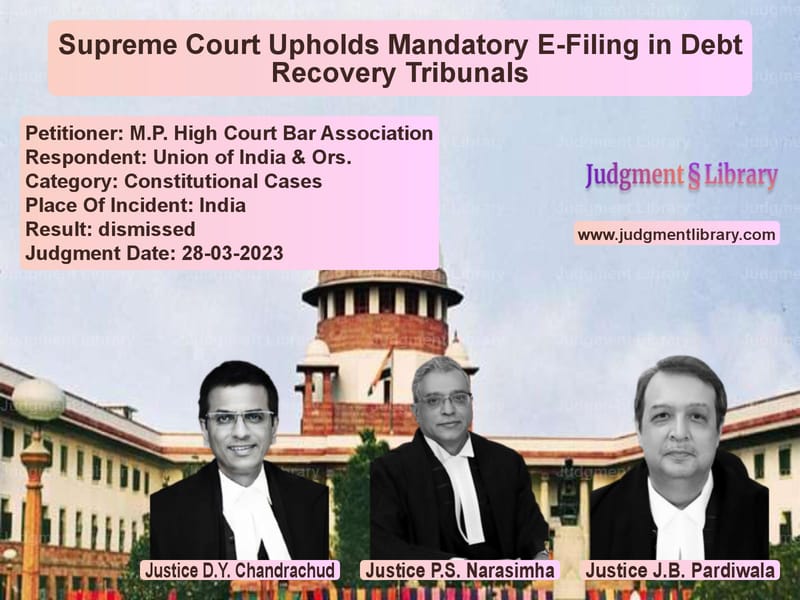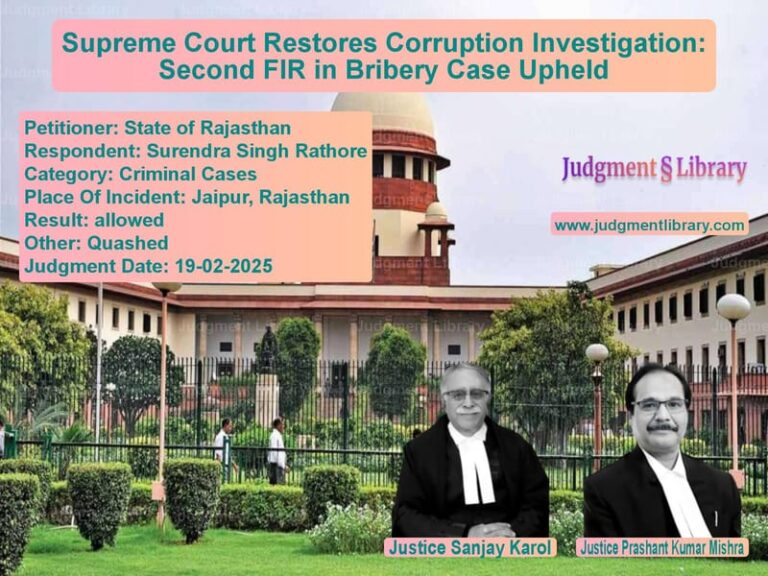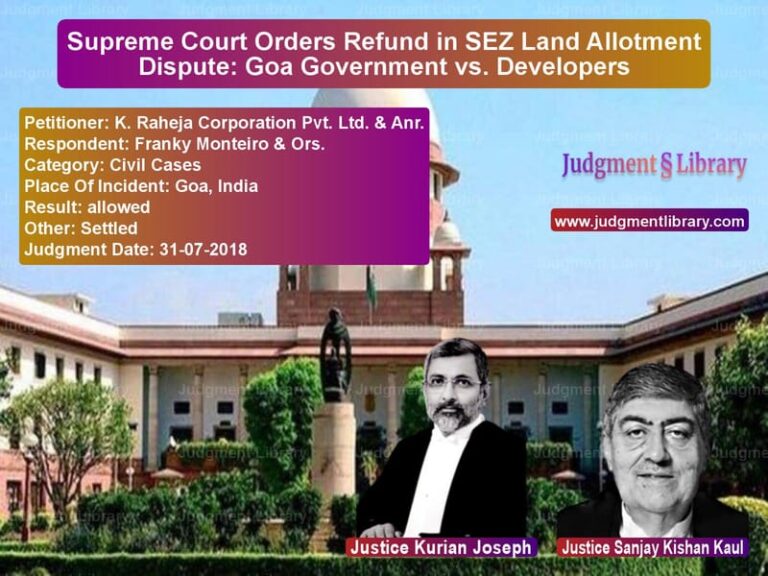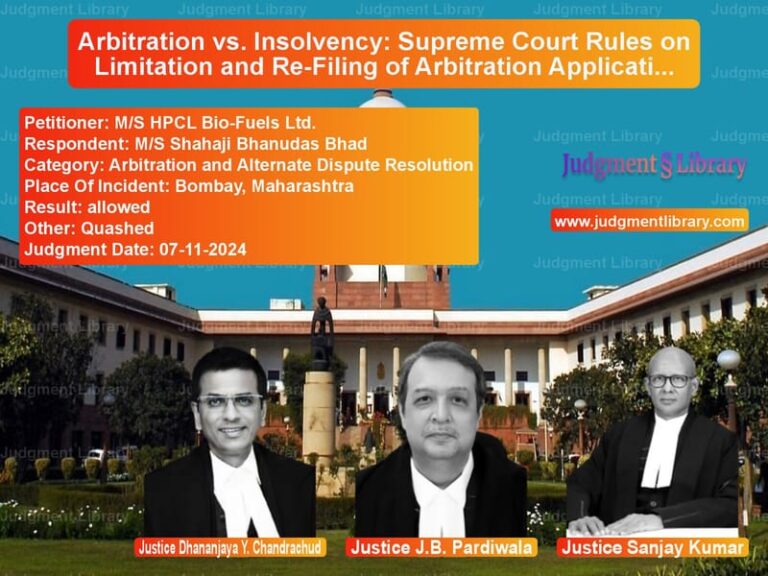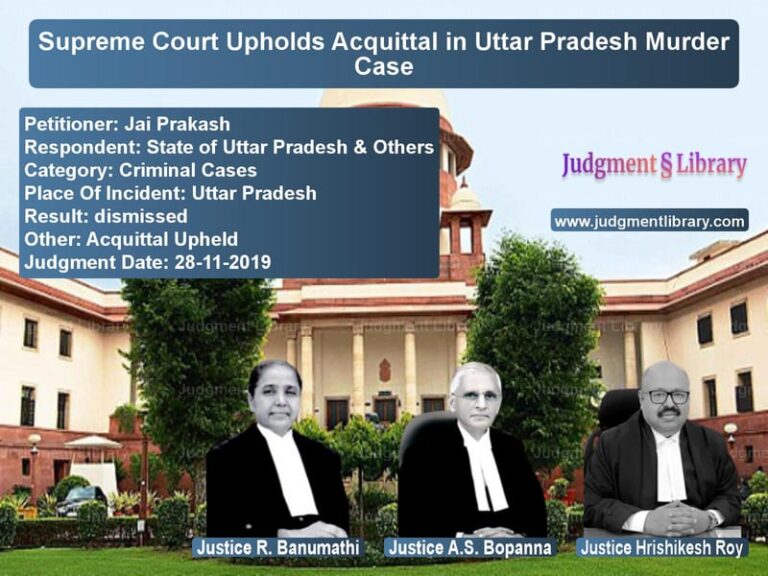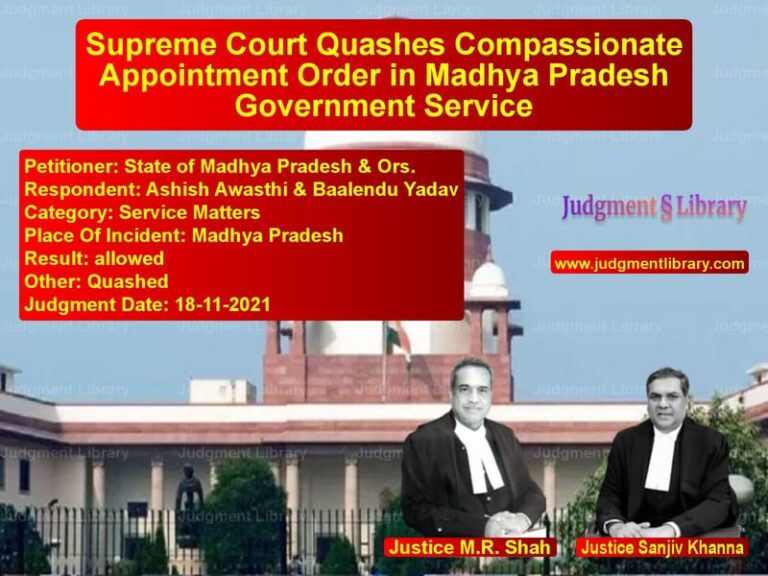Supreme Court Upholds Mandatory E-Filing in Debt Recovery Tribunals
The Supreme Court of India has ruled in favor of the Union of India in M.P. High Court Bar Association v. Union of India & Ors., upholding the mandatory e-filing system introduced in Debt Recovery Tribunals (DRTs) and Debt Recovery Appellate Tribunals (DRATs). The ruling marks a significant step in modernizing judicial proceedings and promoting digital accessibility in financial litigation.
Background of the Case
The case originated from a notification issued by the Union Government on January 31, 2023, under Section 36 of the Recovery of Debts and Bankruptcy Act, 1993. The notification amended the Electronic Filing Rules, 2020, making e-filing of pleadings mandatory for all cases, irrespective of the monetary value involved.
The M.P. High Court Bar Association challenged this notification, arguing that it created hardship for lawyers and litigants, especially those practicing in remote areas with limited internet access.
Key Legal Issues
- Whether the mandatory e-filing rule violates the right to access justice.
- Whether the government adequately considered the infrastructural limitations of lawyers before enforcing the rule.
- Whether exceptions should be provided for senior citizens, female litigants, and practitioners facing digital challenges.
Petitioner’s Arguments (M.P. High Court Bar Association)
The petitioners, represented by Senior Advocate Siddharth R. Gupta, raised the following concerns:
- Mandatory e-filing limits access to justice for those who lack digital literacy.
- Many Debt Recovery Tribunals are located in areas with poor internet connectivity, making compliance difficult.
- The amendment was implemented without proper consultation with legal professionals and stakeholders.
- Exceptions should be made for certain categories, such as senior citizens and female practitioners, who may face additional barriers in adapting to digital systems.
Respondent’s Arguments (Union of India)
The Union of India, represented by Advocate Shyam Gopal, defended the decision, arguing:
- The transition to e-filing was gradual, with the rule first introduced in 2020 as optional and later expanded in 2022 for cases exceeding Rs 100 crore.
- Help desks have been established at all DRTs and DRATs to assist litigants in navigating the e-filing process.
- E-filing increases transparency, efficiency, and accessibility in the judicial process, allowing for 24/7 submission of documents.
- Training programs were conducted to familiarize legal practitioners with the new system before enforcing the rule.
Supreme Court’s Judgment
The Supreme Court bench, comprising Chief Justice D.Y. Chandrachud, Justice P.S. Narasimha, and Justice J.B. Pardiwala, upheld the mandatory e-filing rule while issuing additional directives to address concerns regarding digital accessibility.
“E-filing enhances transparency and efficiency in judicial proceedings. However, recognizing the digital divide, necessary support systems must be implemented to ensure no one is denied access to justice.”
Key Observations:
- The government had undertaken adequate steps to phase in the transition to e-filing.
- Mandatory e-filing should be adopted by other tribunals and High Courts in a phased manner.
- Special provisions must be made to assist lawyers and litigants struggling with digital access.
- Legal professionals should be allowed to submit formal representations regarding specific difficulties faced in adapting to the system.
Key Takeaways from the Judgment
For Digital Judiciary:
- The ruling reinforces the Supreme Court’s commitment to digitizing judicial processes.
- Future expansions of e-filing may be implemented in other courts, making digital access crucial for legal practitioners.
For Legal Practitioners:
- Lawyers must equip themselves with the necessary digital skills to adapt to the evolving judicial infrastructure.
- Bar Associations can formally submit recommendations to improve technical support for members facing difficulties.
For the Government:
- The judgment directs the government to set up additional help desks and e-sewa kendras in all DRTs and DRATs.
- A monthly report must be submitted to monitor and address any issues arising due to the digital transition.
Conclusion
The Supreme Court’s ruling in M.P. High Court Bar Association v. Union of India & Ors. upholds the necessity of modernizing judicial processes through e-filing. While recognizing the digital divide, the Court has directed measures to ensure equitable access to justice. The judgment sets a precedent for broader adoption of digital solutions in the Indian judicial system.
Petitioner Name: M.P. High Court Bar Association.Respondent Name: Union of India & Ors..Judgment By: Justice D.Y. Chandrachud, Justice P.S. Narasimha, Justice J.B. Pardiwala.Place Of Incident: India.Judgment Date: 28-03-2023.
Don’t miss out on the full details! Download the complete judgment in PDF format below and gain valuable insights instantly!
Download Judgment: m.p.-high-court-bar-vs-union-of-india-&-ors-supreme-court-of-india-judgment-dated-28-03-2023.pdf
Directly Download Judgment: Directly download this Judgment
See all petitions in Fundamental Rights
See all petitions in Public Interest Litigation
See all petitions in Separation of Powers
See all petitions in Judgment by Dhananjaya Y Chandrachud
See all petitions in Judgment by P.S. Narasimha
See all petitions in Judgment by J.B. Pardiwala
See all petitions in dismissed
See all petitions in supreme court of India judgments March 2023
See all petitions in 2023 judgments
See all posts in Constitutional Cases Category
See all allowed petitions in Constitutional Cases Category
See all Dismissed petitions in Constitutional Cases Category
See all partially allowed petitions in Constitutional Cases Category

